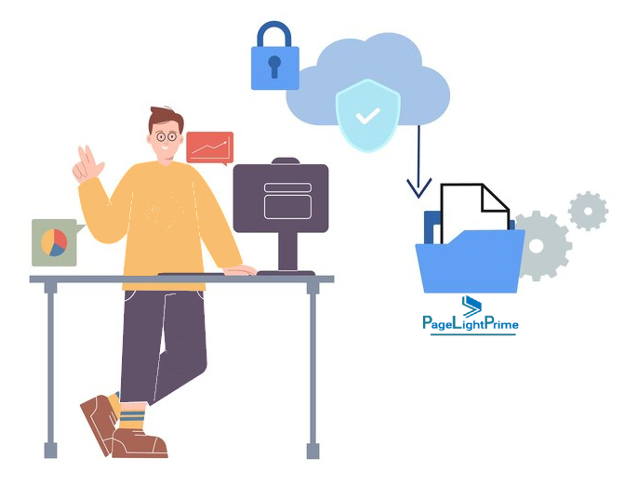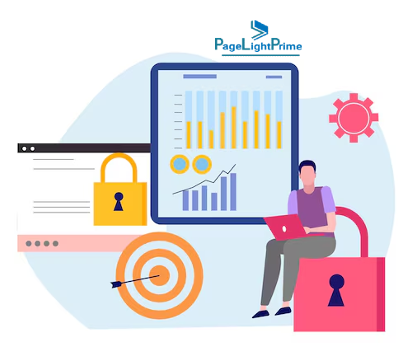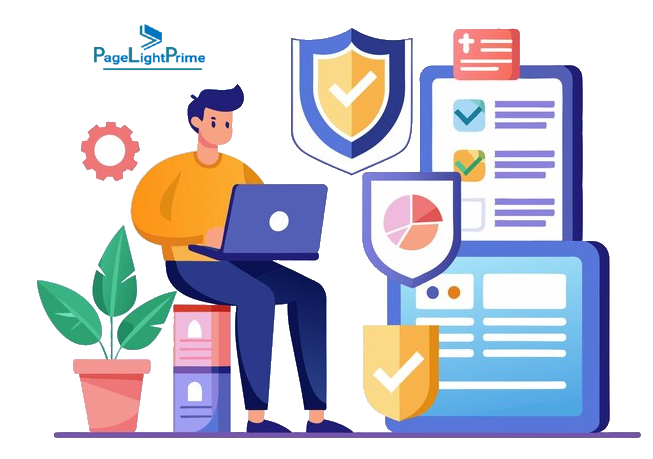Legal Collaboration Software for Law Firms
In today’s fast-paced legal environment, legal collaboration software has become an essential tool for law firms to enhance efficiency, streamline communication, and improve client service. This guide explores the core features, key benefits, popular solutions, best practices, and case studies while addressing common challenges in adopting legal collaboration software. Additionally, we’ll discuss integration with other legal tools, measuring ROI, emerging trends, and additional considerations for selecting the right software.
Written by Knowledge Team, posted on Sep 04, 2024

What is Legal Collaboration Software
Legal collaboration software is designed to facilitate teamwork and communication within law firms. It allows legal professionals to manage documents, cases, billing, and client communication in a secure and organized manner. Whether for small firms or large practices, legal software can significantly improve workflows and client management.
Core Features of Legal Collaboration Software
Legal collaboration software typically offers the following core capabilities:
Secure Document Sharing and Management
Legal DMS to allow teams to securely store, access, and collaborate on case files and legal documents.
Team Communication
Provides messaging, video conferencing, and other tools to facilitate communication between lawyers, staff, and clients.
Task and Case Management
Enables assigning tasks, tracking deadlines, and managing case workflows efficiently.
Client Portals
Offers secure platforms for clients to access case information and communicate directly with the legal team.

Benefits of Using Legal Collaboration Software
Implementing legal collaboration software can provide several advantages, including:
Improved Efficiency
By streamlining workflows and reducing the time spent on administrative tasks, legal software helps law firms operate more efficiently.
Enhanced Remote Work Capabilities
The software facilitates seamless collaboration regardless of physical location, making it ideal for remote legal teams.
Better Client Service
Legal collaboration tools enable faster communication and easier information sharing with clients, leading to improved client satisfaction.
Increased Data Security
With robust security measures, legal software protects sensitive client information, ensuring compliance with industry standards.

Types of Legal Collaboration Software
Legal collaboration software is available in two primary forms: cloud-based and on-premise.
Cloud-Based Legal Collaboration Software
Cloud-based solutions offer flexibility, scalability, and ease of access from any location with an internet connection. They are ideal for law firms that require remote collaboration and want to minimize IT infrastructure costs.
On-Premise Legal Collaboration Software
On-premises software is installed on local servers within the law firm. It offers greater control over data and security but requires a significant upfront investment in hardware and IT resources.

Popular Law Firm Collaboration Software Solutions
Several popular tools are widely used in the legal industry:
Microsoft 365 and Teams
A comprehensive suite of productivity and collaboration tools that integrate seamlessly into many law firms’ workflows.
PageLightPrime
Law firm practice management software built on Microsoft 365 offering collaboration features like document coauthoring, client portal and Teams integration.
Dropbox Business
A cloud storage and file-sharing platform that is popular among law firms for its ease of use and robust security.
LEAP
A legal practice management solution with integrated collaboration capabilities, tailored for small to mid-sized law firms.

Best Practices for Legal Collaboration
To maximize the effectiveness of legal collaboration software, it’s important to follow best practices that foster seamless collaboration and communication within your firm.
Establishing Clear Communication Protocols
Set clear guidelines on how and when team members should communicate. Utilize the software’s messaging and video conferencing tools to ensure everyone is on the same page, especially when working on complex cases or projects.
Leveraging Templates and Automation
Take advantage of document templates and automation features to reduce repetitive tasks and ensure consistency in legal documentation. This can save time and reduce errors in your legal processes.

Regularly Reviewing and Updating Processes
Periodically review your collaboration processes and update them as needed. This ensures that your firm remains efficient and can adapt to new challenges or changes in the legal landscape.
Encouraging a Culture of Collaboration
Promote a culture that values collaboration by encouraging open communication and teamwork. Recognize and reward collaborative efforts to reinforce this culture within your firm.

Case Studies: Successful
Legal Collaboration
Examining real-world examples of successful legal collaboration can provide valuable insights into how your firm can effectively implement these practices.
Corporate Law Firm
A mid-sized firm specializing in corporate law, implemented cloud-based legal collaboration software to manage its growing caseload. By establishing clear communication protocols and leveraging document automation, the firm reduced administrative workload by 30% and improved client satisfaction through faster response times.
Litigation Law Firm
A boutique firm focusing on litigation faced challenges with remote work during the pandemic. By adopting a legal collaboration tool with robust security features, the firm was able to maintain client confidentiality while enhancing remote collaboration. This transition led to a 25% increase in productivity and allowed the firm to expand its client base.

Addressing Common Challenges
While legal collaboration software offers many benefits, law firms may encounter challenges during implementation.
Data Privacy and Security Concerns
Law firms handle sensitive information, making data security a top priority. Ensure that your chosen software offers robust encryption, user authentication, and compliance with industry standards like GDPR and HIPAA to mitigate these concerns.
Resistance to Change
Adopting new technology can be met with resistance, especially from staff accustomed to traditional workflows. Overcome this by providing comprehensive training and demonstrating the software’s value in enhancing daily tasks.
Technical Difficulties
Technical issues can disrupt collaboration and cause frustration among users. To address this, choose software with reliable customer support and invest in training to ensure your team can troubleshoot common problems effectively.

Integrating Legal Collaboration Software with Other Legal Tools
For optimal performance, legal collaboration software should seamlessly integrate with other essential legal tools. This ensures a streamlined workflow and reduces the need to switch between different platforms.” to “For optimal performance, law firm collaboration software should seamlessly integrate with other essential legal tools. This ensures a streamlined workflow and reduces the need to switch between different platforms.
Practice Management Software
Integrating legal collaboration software with case management software allows for centralized matter management, billing, and client communication. This integration helps law firms manage their operations more efficiently by keeping all essential functions within a single interface.
Legal Research Databases
Connecting your legal collaboration software with legal research databases enables quick access to relevant case law, statutes, and legal precedents. This integration is particularly useful for streamlining the research process and improving the quality of legal analysis.

E-Discovery Tools
For firms involved in litigation, integrating e-discovery tools with legal collaboration software is crucial. This integration allows for the seamless transfer of documents and data between platforms, simplifying the e-discovery process and ensuring that all team members have access to relevant case information.
Security and Compliance
In the legal industry, data security and compliance are paramount. Legal collaboration software must help law firms meet regulatory requirements and protect sensitive client information. This includes implementing encryption, access controls, and compliance features that align with industry standards like GDPR, HIPAA, and the American Bar Association’s Model Rules of Professional Conduct.

Future Trends in Legal Collaboration
The legal industry is rapidly evolving, and emerging technologies are set to shape the future of legal collaboration.
Artificial Intelligence (AI)
AI is transforming how legal professionals work by automating routine tasks such as document review, legal research, and even predictive analysis. Integrating AI into legal collaboration software can further enhance efficiency and decision-making processes within law firms.
Blockchain Technology
Blockchain offers secure, transparent, and immutable records, making it a powerful tool for legal collaboration. Law firms can leverage blockchain for secure document sharing, smart contracts, and maintaining an unalterable chain of custody for sensitive information.

Measuring the Return on Investment (ROI) of Legal Collaboration Software
Understanding the ROI of legal collaboration software is essential for law firms to justify the investment and evaluate its effectiveness.
To measure the ROI, law firms should focus on the following Key Performance Indicators (KPIs):
Increased Efficiency
Track the reduction in time spent on administrative tasks and the overall improvement in workflow efficiency.
Improved Client Satisfaction
Measure client satisfaction through surveys and feedback to assess how the software has impacted client service.
Reduced Costs
Calculate cost savings from reduced administrative work, lower IT infrastructure costs (especially with cloud-based solutions), and minimized errors in documentation.
Enhanced Data Security
Monitor the effectiveness of the software’s security features by tracking any incidents of data breaches or unauthorized access.

Additional Considerations
When selecting legal collaboration software, law firms should consider several additional factors to ensure they choose the right tool for their needs.
Cost of Legal Collaboration Software
Evaluate the cost of different legal collaboration software options, considering both upfront costs and ongoing expenses such as subscriptions, maintenance, and training. Law firms should weigh these costs against the expected ROI to make an informed decision.
Importance of User Training and Support
Successful adoption of legal collaboration software depends heavily on user training and support. Choose a software provider that offers comprehensive training programs and responsive customer support to ensure your team can effectively use the software and overcome any challenges.

Conclusion
“
Legal collaboration software is a valuable tool for law firms looking to streamline operations, improve client service, and stay competitive in the digital age. By carefully considering the factors discussed in this guide—including integration capabilities, best practices, security, future trends, and ROI—law firms can select the right software and implement it effectively to drive positive outcomes. With the right approach, legal collaboration software can transform your firm’s workflow, enhance client satisfaction, and secure your position in the evolving legal landscape.
“
